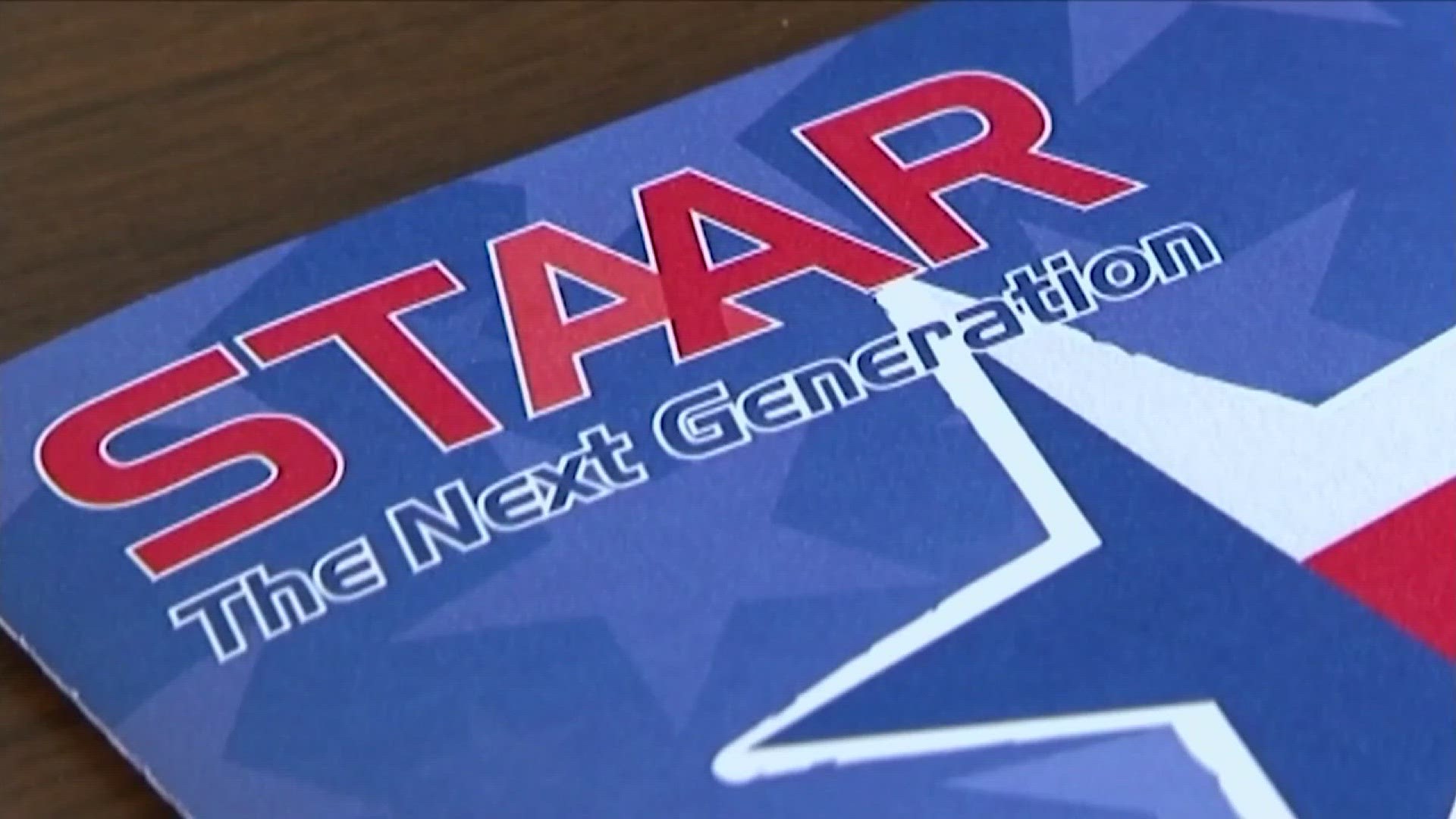TEXAS, USA — It's STAAR testing time for students across Texas and this year, the Texas Education Agency (TEA) is changing the way it grades the tests.
TEA will be using AI software to grade students' written responses to open-ended questions. The state says the technology is desperately needed because the new tests have more open-ended questions than previous years.
BREAK DOWN | A full detailed break down of the new grading system
The TEA calls this technology an automated scoring engine that'll save money, but educators and parents aren't convinced that this is best for their students.
Parents took to 12News' Facebook to complain about the stress the test already puts on students.
"Skeptics are saying, well, it's probably because we haven't, you know, fleshed out everything associated with computers grading human work," Lamar University Associate Dean of Educator Preparation Programs and Accreditation, Dr. Jon Gray.
While Dr. Gray welcomes more open-ended responses and fewer multiple-choice questions, he says AI is still an imperfect tool.
KEY QUESTIONS | STAAR's new hybrid scoring system
"Having computers grade, obviously, will reduce the financial cost behind that. But again, it brings in the reliability or the consistency or the accuracy. It absolutely is a double-edged sword," he said.
TEA implemented their automated scoring engine after doing pilot testing last year.
Programmers compiled thousands of responses on test questions and even went through two rounds of scoring with human graders. That allowed AI-based software to learn how humans grade written responses.
"Why would you make it worse, by taking the human element out of grading and put it in a computer? That doesn't make any sense to me," said Clay Robison, the spokesperson for Texas State Teachers' Association.
The state argues it would save $15-20 million per year, but Robison calls the move troubling.
He says it adds more uncertainty to an already flawed testing process.
"Students promotions depend upon it. The graduation depends upon it. School ratings depend upon it. And why throw this other element of uncertainty into it?" he said.
TEA says this year, safeguards will be in place and a quarter of the tests will be re-evaluated by humans to ensure accuracy.

